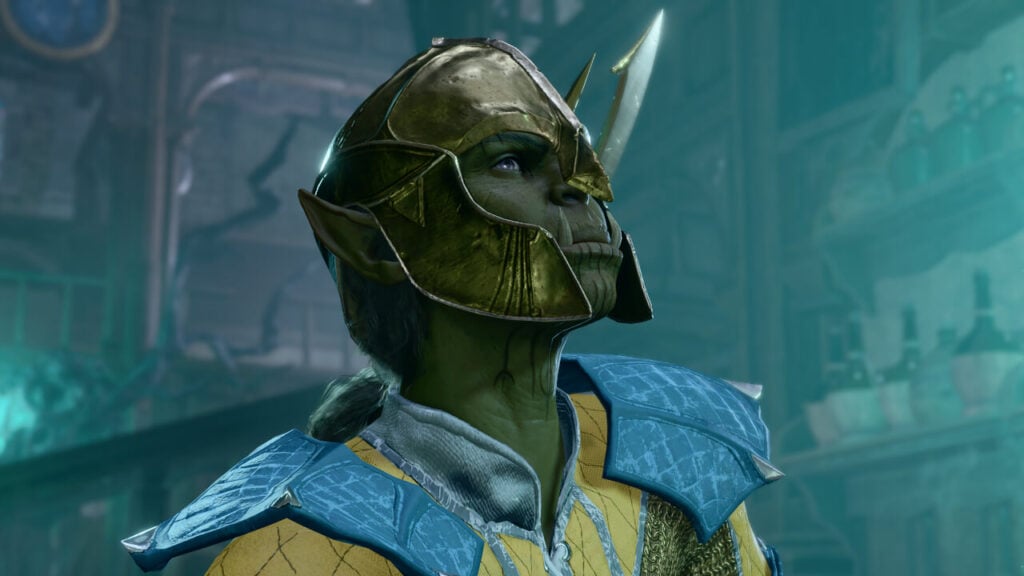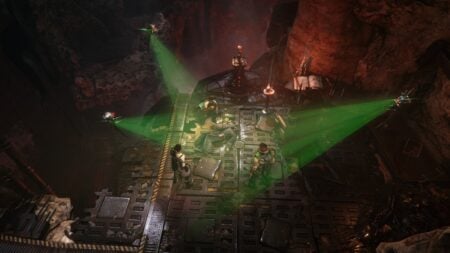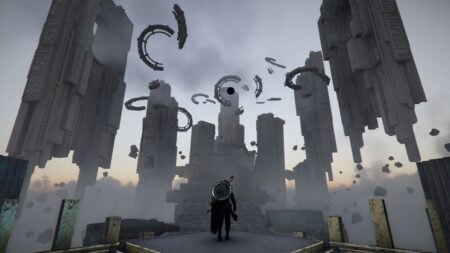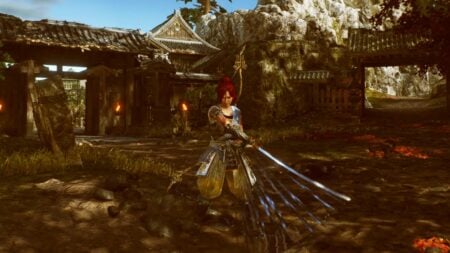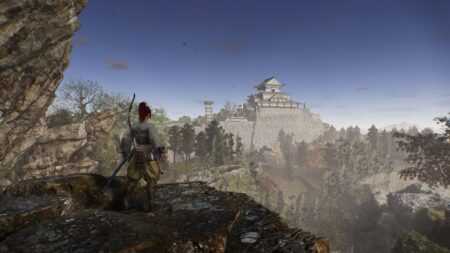Skip To...
When most people picture smooth talkers in Baldur’s Gate 3, they picture classes like Bards, Rogues, and Sorcerers. Having high Charisma and a way with words is the traditional formula to charm others in Dungeons & Dragons and the games it inspires. In the newest title by Larian Studios, however, there’s a secret star of the social class scene that might not come to mind for many players: the Barbarian. It’s not the best class for beginners, but it’s one of the most fun and unexpected. How exactly is this uncouth class known for its rage and ax attacks so sociable? It’s not for the reason you expect. Here’s the inside scoop.
What Makes Barbarian Baldur’s Gate 3’s Best Social Class

Imagine that a guard bars your path, preventing access to their hideout. You need to get past them and want to avoid a fight. That classic Dungeons & Dragons scenario is the kind of situation that Larian Studios perfectly replicates in Baldur’s Gate 3. In almost every situation, there are a number of possible solutions. A player’s options can also change depending on their class, race, and skill set. Baldur’s Gate 3 players who know they want to seek diplomatic solutions to most situations will often choose a social class like Bard or Sorcerer, known for their strong personalities and high Charisma. That’s a perfectly viable option in BG3, but it’s not the only (or most interesting) one.
A Barbarian’s most notable class feature is its Rage. The character screams and then enters a fury, granting them Advantage against their enemies in battle at the cost of their own safety. Brilliantly, Larian Studios expanded upon this classic mechanic by giving it utility outside of combat. Sure, you could use Persuasion, Deception, or Intimidation to get by the guard blocking your way, but if you’re a Barbarian, you could just Roar instead. Watching your character drop the niceties and just bellow at people until they get their way is beyond satisfying. More importantly, it works.
Roar Your Way to Success in Baldur’s Gate 3

What makes the Roar solution to social situations so incredible is how thoroughly Larian Studios has integrated this mechanic into the game. When your Half-Orc Berserker Barbarian with an enchanted polearm screams in the face of some lowly goblin to bully him for information, you expect the goblin to give in. But Roaring works on pretty much everyone and everything. Owlbear irritated that you’ve intruded upon her cave? Roar at her and the beast will reconsider eating you. Githyanki warlord threatening to murder you for your disrespect? Roar at him and the warlord will suddenly remember he had places to be. Barbarian is a strange social class but an effective one.
A massive and varied cast populates the Forgotten Realms. Even before the player has reached Act 2, they’ve been introduced to all manner of people and their problems. The fact that you can scream to get your way with pretty much anyone, from minor NPCs to actual bosses, is nothing short of incredible. That said, Roaring isn’t foolproof. It might be less threatening than a drawn sword but not by much, and some NPCs will very much take your bellowing for the intimidation attempt that it is. If you aren’t ready for an actual fight, choose your options wisely.
The Legacy of Dungeons & Dragons

Baldur’s Gate 3 immediately blew gamers away with how faithfully it replicated the tabletop experience of Dungeons & Dragons. The Roar mechanic is a small example, but understanding it helps illustrate why BG3 is so incredible and is evoking such a positive response from players. What makes D&D such a powerful storytelling tool is that it’s incredibly interactive. Improvisation and roleplay are key. Anything you can imagine, you can probably try. Whether it actually works or not is a different matter. With Baldur’s Gate 3, Larian acts as the Dungeon Master saying Yes to players. Yes, you can just Roar at the necromancer and see if he backs down. Yes, you can think outside the box and apply your abilities in unconventional ways.
Baldur’s Gate 3 is the first game in a long time to capture that kind of freedom in an RPG. Barbarians might have cornered the market on Roaring, but every social class can apply their talents in unique ways. The result is a story in which it truly feels like the player’s input matters. That all starts with character creation. As players get more time with the game, more stories about mechanics like this will come out. Perhaps Bards will figure out how to break the Underdark bosses with nothing more than a lute. Maybe Paladins will alter entire quests with a choice word. But Barbarians will still be the best, and loudest, for reasons no one expected.

